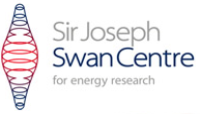Session Chairs
The following colleagues chaired a session(s) at SusTEM2017:
| Session Chair for Industrial Waste Heat Utilisation I: Professor Lingai Luo (France) |
|
Lingai Luo received her Ph.D. degree (1991) in mechanic and thermal engineering from National Polytechnic Institute of Lorraine (INPL), Nancy, France. She worked as associate professor at University of Nancy I and at INPL, France. From 2003 until 2012 she was a full professor at University of Savoie, France. She is now senior research director of French National Centre for Scientific Research (CNRS) at the laboratory of thermo-kinetics, Nantes (LTN), France. Lingai’s research covers a wide range of topics in thermal, process and energy engineering: combustion and fluidized bed; energy balance analysis; solar refrigeration machines; separation processes; energy for buildings, etc. More recently, her research activities focus on a fundamental strategy based on thermodynamic analysis and cantered on the transfer intensification and energy systems optimization. More precisely, it concerns firstly the design, fabrication, characterization, simulation and optimization of innovative fluidic, thermal and reactive components, and secondly the development of new thermo-chemical systems and processes for low-grade thermal energy transportation and valorisation, and inter-seasonal solar energy storage for their applications in buildings.
|
| Session Chair for Industrial Waste Heat Utilisation II: Associate Professor Vincent Lemort (Belgium) |
|
Vincent Lemort obtained his PhD in 2008 from the University of Liège (ULg). He has been a visiting scholar in Purdue University (USA) and in the Ecole des Mines of Paris. He is currently an Associate Professor at the Thermodynamics Laboratory of ULg and he is leading the Energy Systems Research Group. His research and teaching activities deal with the modelling, the testing and the optimization of energy systems and more especially displacement machines, small-scale Rankine cycle systems, heating, ventilation, air-conditioning and refrigeration systems. He has published more than 150 journal and conference papers on these topics. He has a strong background in working in collaboration with Industry but also in the frame of international research projects (among which IEA and FP7 projects). He is the Chairman of the International Conference on System Simulation in Buildings (SSB). He was the Scientific Chairman of the ASME Seminar on ORC Power systems in 2015. He is also a member of the Scientific Panel of the ORC Power Systems committee of the ASME IGTI and of the Engine ORC Consortium.
|
| Session Chair for Industrial Applications: Assistant Professor Martijn van den Broek (Belgium) |
|
Martijn van den Broek received his PhD awarded by Universiteit Hasselt in 2008. When he was a researcher, he investigated fluctuation-driven phenomena in non-equilibrium thermodynamics, with applications in Brownian motors and refrigerators. Also, he applied thermodynamics concepts to develop fuels from sunlight. He then focussed on a broader range of research topics on sustainable energy solutions when he was a research scientist in Hogeschool West-Vlaanderen. Currently, he is an Assistant Professor in Ghent University, Belgium and his research areas mainly cover thermal energy for industrial applications, e.g. thermal machines (organic Rankine cycle, industrial heat pumps, heat storage, combined heat and power), components (in particular positive displacement compressors and expanders) and global plant efficiency (process integration methodologies, heat networks), to name a few.
|
| Session Chair for Thermal Networks: Professor Zhijun Peng (UK) |
|
Zhijun Peng will start his professorship in the University of Bedfordshire, UK in June 2017. Prior to his new role, he has been a Reader in Sustainable Energy Technology in the School of Engineering and Technology, University of Hertfordshire since 2013. As the leader of the Sustainable Energy Technology Research Group in University of Hertfordshire, his is responsible for research activities on sustainable vehicle powertrains and vehicle energy efficiency and emission control technology with an emphasis on experimental investigation, though he also conducts some numerical simulations including CFD modelling. Zhijun was a lecturer since 2004 and then as a senior lecturer since 2007 in the School of Engineering and Design, University of Sussex. He acquired his industry experience as a powertrain development engineer at the Dunton Technical Centre of Ford Motor Company between May 2003 and September 2004.
|
| Session Chair for Renewable Heating and Cooling Systems: Professor Robert Critoph (UK) |
|
Robert Critoph is head of the Sustainable Thermal Energy Technology group in the School of Engineering at the University of Warwick. He is principal investigator for the Interdisciplinary Centre for Storage, Transformation and Upgrading of Thermal Energy (i-STUTE). i-STUTE is one of the UK's 6 major "end use in energy demand" centres funded by the EPSRC. It develops technologies that aim to reduce energy consumption and deliver cost-effective heating and cooling which will help the UK achieve its target of a reduction in greenhouse gas emissions of 80% by 2050. The centre brings together cutting-edge engineering advances with economic, behavioural and policy expertise to produce solutions that are both technically excellent but also appealing to business, end-users, manufacturers and installers.
|
| Session Chair for Industrial Energy, Materials and Products (CIE-MAP): Professor Antonio Lecuona (Spain) |
|
Antonio Lecuona Neumann is a professor in the area of Machines and Thermal Motors in the Department of Thermal and Fluid Engineering. Co-leads the ITEA research group. Built on his doctoral thesis on the fluid-dynamics of the implosion of the spheres, he continued to investigate internal combustion engines. He was appointed for the commissioning of engineering studies at the new Carlos III University of Madrid In 1991. He switched to advanced laser diagnostic techniques, applied to industrial interest flows, especially in those with environmental and energy repercussions. His recent research covers the development of hybrid absorption machines for cold production, especially with dissolution of lithium-ammonia nitrate.
|
| Session Chair for Control, Modelling and Optimisation: Professor Geoffrey Hammond (UK) |
|
Geoffrey Hammond is Professor of Mechanical Engineering at the University of Bath, and was founder Director of its Institute for Sustainable Energy & the Environment (I•SEE). He is a mechanical engineer with a multidisciplinary background, including environmental engineering and management. His research interests are mainly concerned with the technology assessment of energy (including bioenergy and biofuel) systems and transition pathways to a low carbon future, using a toolkit of methods derived from the engineering and environmental sciences (such as carbon and environmental foot printing, environmental life-cycle assessment, risk assessment, and thermodynamic analysis). This research has recently been funded in the UK by the Carbon Trust, EdF Energy and EdF R&D, the Environment Agency, the Great Western Research (GWR) Alliance, the UK Energy Research Centre, and various Research Councils (the BBSRC, EPSRC, ESRC and NERC).
|
| Session Chair for Building Energy Performance I: Professor Gianfranco Rizzo (Italy) |
|
Gianfranco Rizzo received his undergraduate degree cum laude in Mechanical Engineering at University of Naples in 1975. He worked at FIAT in Turin, Italy at the National Council of Research, at the University of Naples and at the University of Salerno (since 1992), where he is Full Professor in Mechanical Engineering and Chair of the Mechanical Engineering Teaching Council (2011-). He is the Chair of the IFAC TC 'Automotive Control' (2008-) and the Associate Editor of Control Engineering Practice. He has published more than 150 papers on modeling and control of automotive engines, hybrid and solar vehicles, modeling and optimization of hybrid and conventional power plants, renewable energy, cogeneration, turbomachines, optimal management of bio-economic systems.
|
| Session Chair for Building Energy Performance II: Professor Dorota Chwieduk (Poland) |
|
Dorota Chwieduk is the Deputy Director of The Institute of Heat Engineering, Faculty of Power and Aeronautical Engineering, Warsaw University of Technology, Poland. She studied at the Technical University of Warsaw, Mechanical Faculty for Aviation, Energetic & Power at Technical University of Warsaw. As a mechanical engineer, Dorota is an expert at energetic systems and equipment. She holds a Ph.D. in Technical Sciences on Buildings. Her research areas include energy conversion and storage; active and passive use of solar energy, solar technologies; heat transfer in buildings; energy performance of the building; thermal modernization and energy audit; smart cities, heat pump; poly-- trigeneration, combined heat, cooling and power; energy efficiency systems and devices; and analysis of the full life cycle - LCA, energy consumption built, to name a few.
|
| Session Chair for Energy Storage I and II: Professor Herbert Zondag (The Netherlands) |
| Herbert Zondag is a professor at the TU Eindhoven, specialised in Heat Storage Technology. His is also associated with ECN and his research areas cover heat, power to heat and optimisation of multiple energy carriers. |




